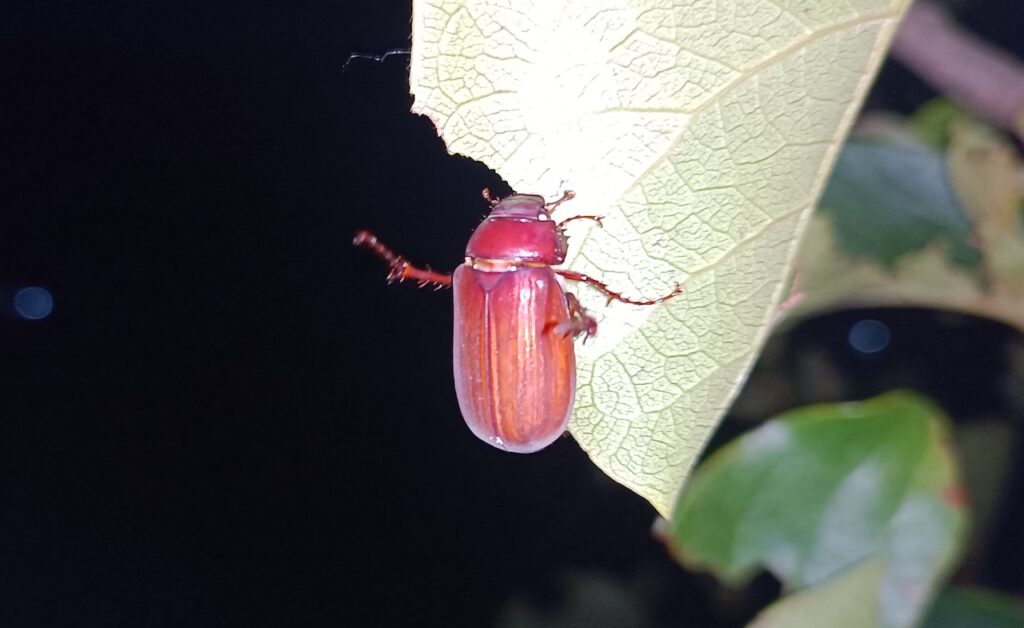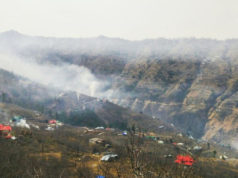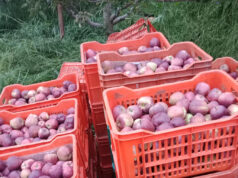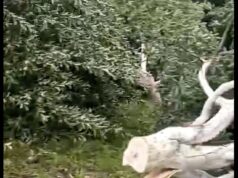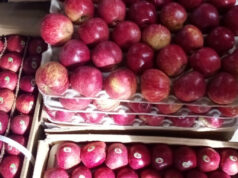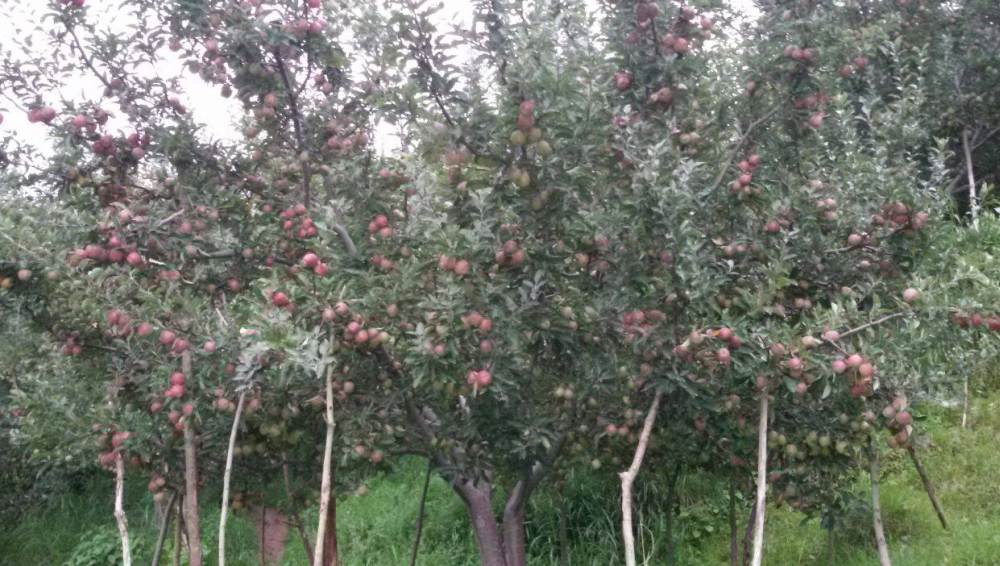Nauni, Solan — Amid rising reports of beetle infestation in apple orchards and other stone fruit crops, Dr. YS Parmar University of Horticulture and Forestry, Nauni has issued a detailed advisory for farmers and orchardists to combat the growing menace. The pest, commonly referred to as May or June beetles, is a serious threat to high-value horticultural crops in Himachal Pradesh.
These polyphagous beetles, known for their voracious larval (white grub) and adult stages, are increasingly damaging apple, peach, and citrus trees, along with vegetables like potato, carrot, and tomato. Even ornamental plants have not been spared.
Lifecycle and Impact
The beetles lay eggs in the soil during the summer rains. The larvae initially feed on organic matter but later begin attacking the roots of plants. The C-shaped, creamy white grubs with brown heads cause severe damage underground, compromising plant anchorage and disrupting nutrient uptake. This leads to symptoms like wilting, stunted growth, and in extreme cases, plant death.
In their adult form, beetles emerge a few weeks after pupation and target tender leaves, causing widespread defoliation. Some species also feed on flowers and fruits, leading to reduced yields and poor fruit set.
Integrated Pest Management Strategy
Dr. YS Parmar University has recommended a comprehensive Integrated Pest Management (IPM) approach, incorporating cultural, mechanical, biological, and chemical methods suited to the pest’s lifecycle and local conditions.
Cultural Practices:
- Repeated ploughing in April–May and September helps expose and reduce grub populations.
- Only well-decomposed farmyard manure should be used, as it discourages grub development and promotes beneficial soil organisms.
Mechanical Control:
- Since adult beetles typically emerge with the onset of summer rains, manual collection during the dusk hours (after 8 PM) is effective.
- Farmers are advised to shake tree branches, collect beetles on cloth sheets, and destroy them in a 5% kerosene-water solution.
- Light traps may also be used in open areas to monitor and attract beetles.
- Mass collection campaigns should begin immediately after the first summer rains.
Natural Farming Methods:
- For those practicing natural farming, university experts recommend spraying Agniastr, Brahmastr, and Dashparniark (3 litres per 100 litres of water) for three consecutive days to reduce beetle activity.
Serious Risk if Ignored
Experts warn that unchecked infestation could lead to large-scale crop losses across fruit belts in the region. The university has urged farmers to remain vigilant during the vulnerable monsoon and post-monsoon periods and to act promptly using the advised methods.
With apple and stone fruit production forming the backbone of the region’s horticulture economy, timely pest management could prove vital in preventing significant damage this season.


